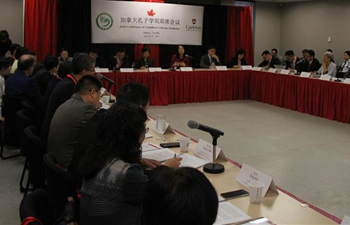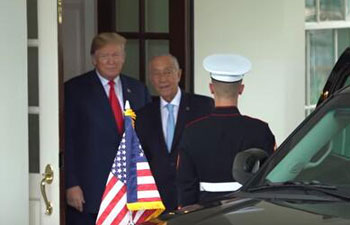WASHINGTON, June 27 (Xinhua) -- The American Institute for International Steel (AIIS) on Wednesday filed a suit at the U.S. Court of International Trade challenging the constitutionality of the so-called Section 232 under which U.S. President Donald Trump imposed a 25 percent tariff on imported steel.
In its lawsuit, the AIIS alleged that Section 232 of the Trade Expansion Act of 1962 violates the constitutional prohibition against Congress delegating its legislative powers to the president because it lacks any "intelligible principle" to limit the discretion of the president.
Section 232 allows the president to impose "unlimited" tariffs or create other trade barriers at his unfettered discretion if he believes they are needed so that "imports will not threaten to impair the national security," according to the AIIS.
"In addition to the totally open-ended choice of how to counter any threat that imports may present, Section 232 allows the President to consider virtually any effect on the U.S. economy as part of 'national security,'" AIIS President Richard Chriss said in a statement.
The AIIS also said that Section 232 violates "the doctrine of separation of powers and the system of checks and balances" that the Constitution protects, as there is no provision for judicial review of the president's decisions under Section 232.
The lawsuit came after the Trump administration unilaterally imposed tariffs on steel and aluminum imports in the name of national security, which provoked strong opposition from the domestic business community and retaliatory measures from major U.S. trading partners.
The AIIS, which includes members of railroads and other transportation companies, complained that steel tariffs had numerous additional negative effects on U.S. business, saying steel-using manufacturers were encountering product price increases of 50 percent or more.
Acknowledging the negative consequences from steel tariffs, more than 270 U.S. national, state and local business groups on Tuesday also voiced support for legislation that would compel the president to get congressional approval before imposing tariffs on the grounds of national security.













